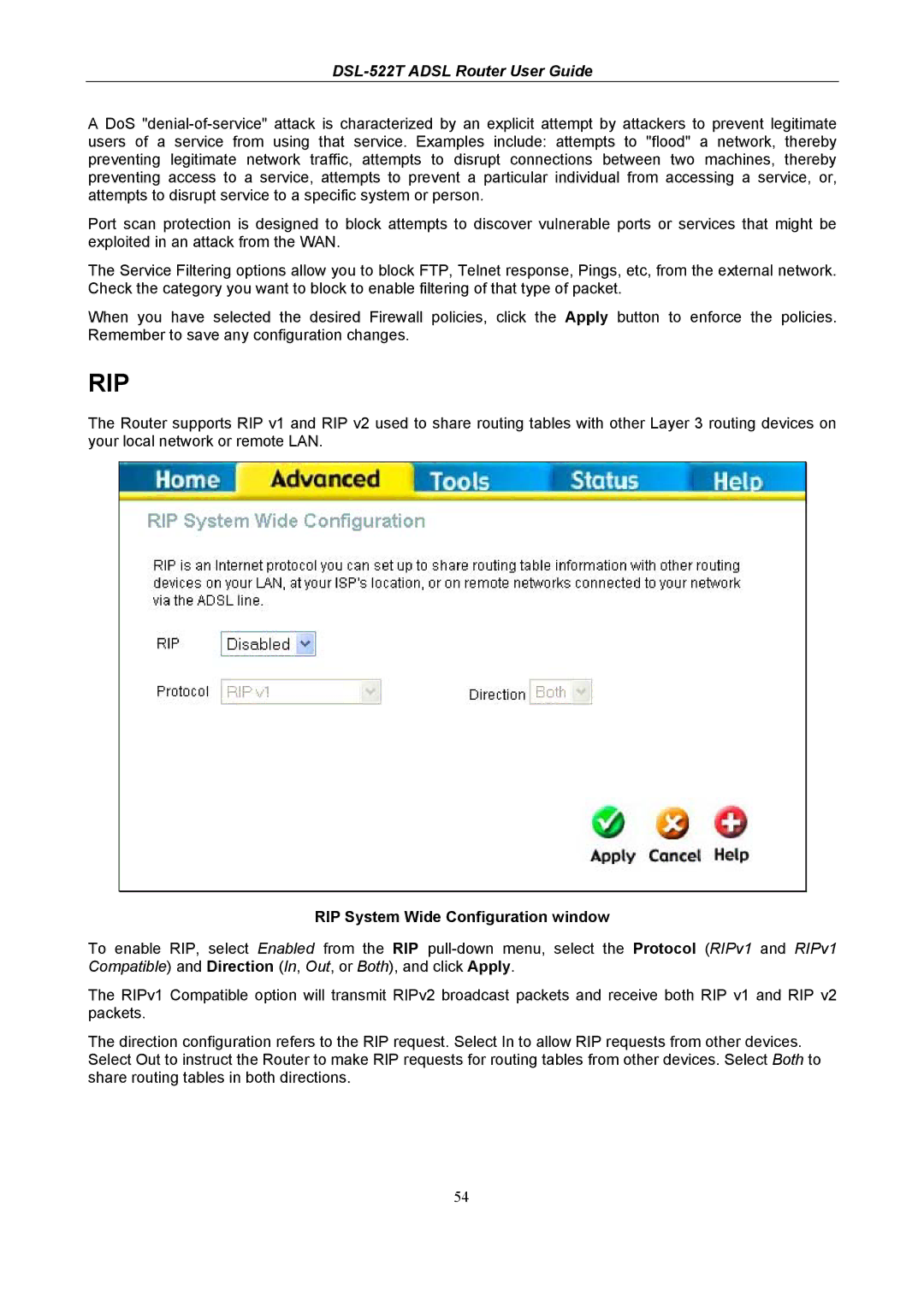
DSL-522T ADSL Router User Guide
A DoS
Port scan protection is designed to block attempts to discover vulnerable ports or services that might be exploited in an attack from the WAN.
The Service Filtering options allow you to block FTP, Telnet response, Pings, etc, from the external network. Check the category you want to block to enable filtering of that type of packet.
When you have selected the desired Firewall policies, click the Apply button to enforce the policies. Remember to save any configuration changes.
RIP
The Router supports RIP v1 and RIP v2 used to share routing tables with other Layer 3 routing devices on your local network or remote LAN.
RIP System Wide Configuration window
To enable RIP, select Enabled from the RIP
The RIPv1 Compatible option will transmit RIPv2 broadcast packets and receive both RIP v1 and RIP v2 packets.
The direction configuration refers to the RIP request. Select In to allow RIP requests from other devices. Select Out to instruct the Router to make RIP requests for routing tables from other devices. Select Both to share routing tables in both directions.
54
